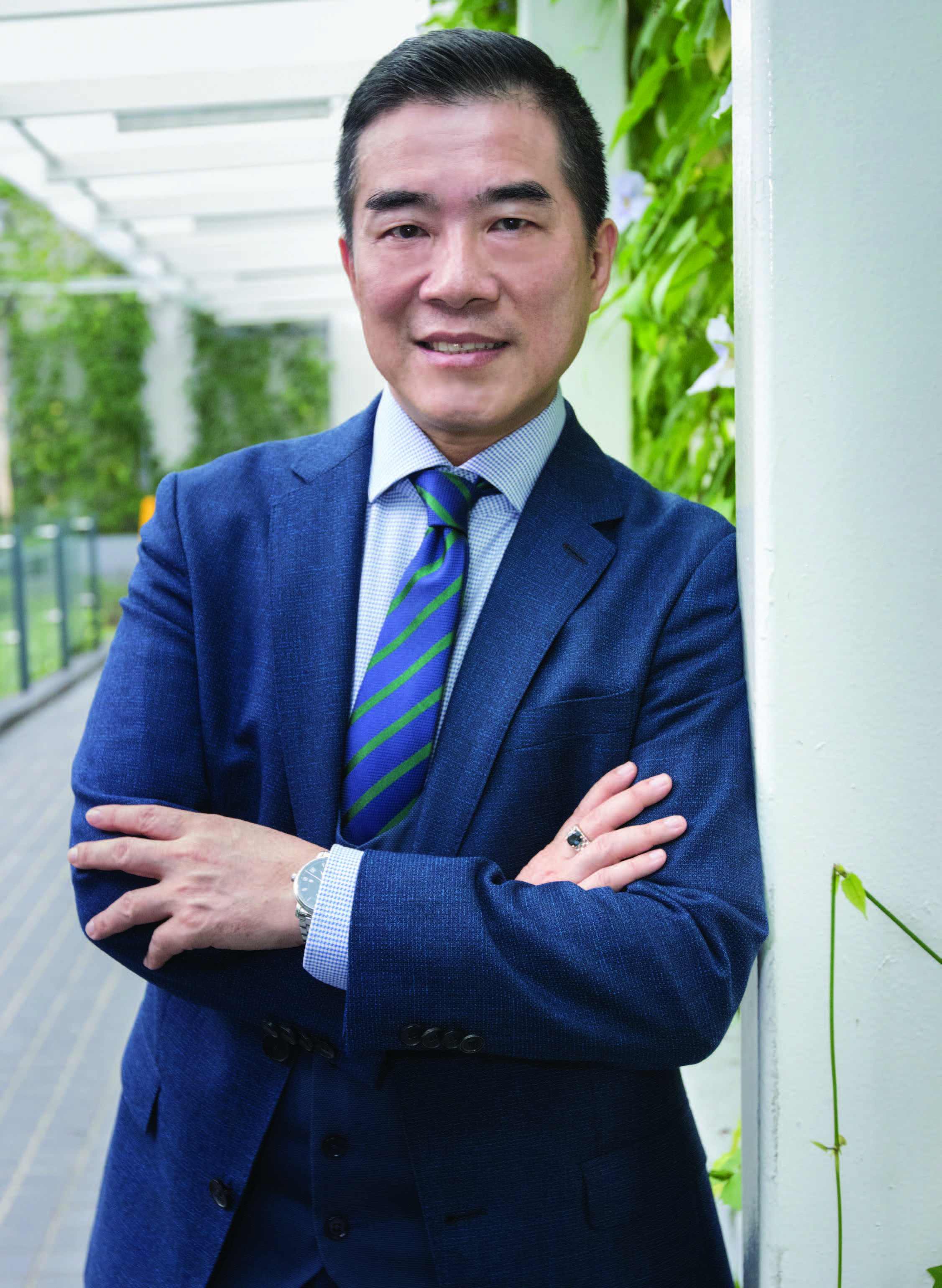Being an entrepreneur is not just about leadership and management, as the reality is it also requires one to master interpersonal relationship, a real skill that the leaders must possess to maximise effectiveness in their role.
Professional and training guru in interpersonal relationship and organisational behaviours Michael Chiang shares on this matter with Entrepreneur Insight.

He says that it is not easy to define leadership, but an individual who has real leadership abilities will always have someone working towards the same goal with him or her, while putting aside benefits and remuneration.
“Possessing leadership abilities helps entrepreneurs reach their objective and fulfil their expectations. A real leader recruits talents and assist them to build careers.”
Chiang, who is also the Founder of 4U Institute of Interpersonal Relationship, clearly points out that “leading” and “managing” are two different subjects, but most people are unclear of the difference.
4U Institute of Interpersonal Relationship is a regional institute which has a reputation for 22 years of excellence and pioneering in behavioural study.
“What is leadership? What is managing? Leaders take on challenges and decide on the direction for an organisation. In contrast, managers strengthen the direction for steady progress.
“A leader decides ‘what to do’ and ‘why something is worth doing’, but a manager chooses ‘when to do’ and ‘who to take on which tasks’.”
Recruiting talents is part of an entrepreneur’s responsibilities. Chiang shares his perception on this important matter. “There are two types of talents – those who are useful and those whom you like.
Entrepreneurs often lack the suitable tool to identify the right talents, he says.
“The talent recruitment system I designed can help entrepreneurs match talents with the right characters to suitable job positions with precision, and not be affected by external recruitment factors.”
Speaking on retaining high performers in an organisation, Chiang says most companies use the same approach of giving increment and awarding bonus, but these are just part of what employers should do.
“It is important to know in human nature that not everyone focusses only on remuneration. Some employees like to have a sense of accomplishment, some likes to be respected, while others prefer to be noticed.
“For different employees, we should use different ways to lead and motivate them. When an employer gets this right, he or she will be able to retain all performing employees,” he explains.
Employers should also consider using an equity incentive plan to retain high performing employees. By using this plan, performing employees will not think of themselves as mere employees because they will be rewarded when the company earns profits, says Chiang.
Another good option is to give recognition to top performers through a “Board of Honours” or “Board of Heroes” where they can be learning examples to other employees, he states.
Additionally, employers can also carry out a goodwill gesture of visiting high performing employees’ parents and thank them for nurturing their children into talents. “Respecting employees’ parents make employees feel appreciated in front of their parents, which in a way helps the company to retain them,” he says.
On the matter of training for employees, Chiang says that many companies in Asia have a limited scope which only focus on skills and knowledge training.
“Based on my 20 years of experience in professional training, I have always put forward the ‘SHARK’ theory.” He states that a comprehensive educational training should have five elements and “SHARK” stands for Skill, Habit, Attitude, Relationship and Knowledge.
“My theory includes the training of skills, nurturing good habits, building positive attitude, building relationship with clients, and learning job-related knowledge.
“This increase the risk of helping other companies to train ‘employees’ (where they might leave and join another company one day). I think this is a problem faced by many companies.”
He stresses that there are three main requirements for an individual to qualify as a leader.
“First, a leader must build a sense of responsibility and honour in his or her team. Second, a leader must also lead by example. It is important for a leader to be capable of delivering what is expected from team members. I belief this will earn the trust from employees and unite them.
“Third, is to put in effort to build a learning organisation, so that employees in the organisation sees learning something enjoyable and continuously adopt innovation. Last but not least, leaders must know how to identify and manage talents by placing them in the right position or you can’t hold them for long,” he says.
A learning organisation has knowledge competitiveness, because its employees will always be learning and digesting new knowledge, and make improvements accordingly, he adds.
Asked on why some leaders achieve success whereas some others fail, Chiang says, “Among leaders, there is a saying of ‘success is achieved for a reason, but we might also fail because of the same reason’.

“A leader might be capable of fulfilling responsibilities due to his or her character at the beginning, but at a later period if no suitable adjustments to the leader’s character are made, it might result in failure,” he adds.
He opines that leadership demands of today requires leaders of to have a system which will remind them to adjust and make corrections whenever suitable.
Chiang also shares his views on company culture. “In my opinion, a company that has not establish its corporate culture will still be able to maintain business operation, but not for long.
“Having a good corporate culture is the cornerstone of a company’s sustainable development. Furthermore, among jobseekers, a rookie focusses on the remuneration, a veteran looks at the organisation, while an expert shows high interest on a company’s corporate culture.
“Employers will draw the attention of a rookie who has just entered the job market by offering an attractive salary. In contrast, an individual with more than 10 years of working experience will first study the structure and internal communications in an organisation.
“However, an expert will find out how a leader uses corporate culture to drive operations in a company.”
He says that a good corporate culture should include three important characteristics. “First of all, the corporate culture must have its own significance and values. It must also be simple where employees can understand it.
“Furthermore, when the culture is applied within the company it should be changing the lives and values of many employees.”
A good corporate culture benefits a company by helping it to retain talents, strengthen its organisation structure and have stable operations, he states.
Business leaders including entrepreneurs spend a lot of time on their work to manage operations and employees. Nevertheless, it is also important for them to maintain work-life balance.
“Having a successful career is one of the most important goals in life for many of us. However, I feel that no entrepreneur will be willing to pursue a great career while sacrificing his or her family.
“That is why we must make a choice in life, especially in today’s high-stress society. I suggest entrepreneurs to choose quality over quantity. They should set aside time to focus on spending quality time with family members.”
He says that a good option for entrepreneurs is to allocate two days out of their monthly schedule, where they put aside work matters and only concentrate on accompanying their family members.
Chiang stresses that entrepreneurs must focus on three important matters, which are to help the company gain high revenue, decide on the operation direction, as well as put in effort to recruit and retain talents.
“Many business owners think that having capital, good business model and product is sufficient to lead them to success, but they are soon hit with setbacks. The key reason isbecause they did not prioritise in forming a strong and capable team of employees.
“No matter how good your business model and product are, you will not be able to promote a product without a good team which has members who understands each other well.”
He says that a group of people that doesn’t share the same thoughts is just like a gathering, whereas a group of people who connects and share the same thoughts makes a real team.
Based on his years of training experience, Chiang noticed that the biggest wastage and cost among companies is not hiring the right and suitable employees.
“It is crucial to place the right person in the right position. Replacing an employee in unsuitable positions means time has been wasted and no real progress gained,” he states.
Michael Chiang is among the very few professional education and training guru in Sinosphere that exhibits complete mastery of theory and practice as well as adept in demonstrating, speaking, teaching and writing.
He has accrued 22 years of experience in professional training with number of trainees exceeding 100,000 spread across Taiwan, Hong Kong and China as well as Singapore and Malaysia.
His classes are noted for its interactivity and creativity, filled with his unique understanding on human nature and have inspired many students.
BY JEFF TAN

